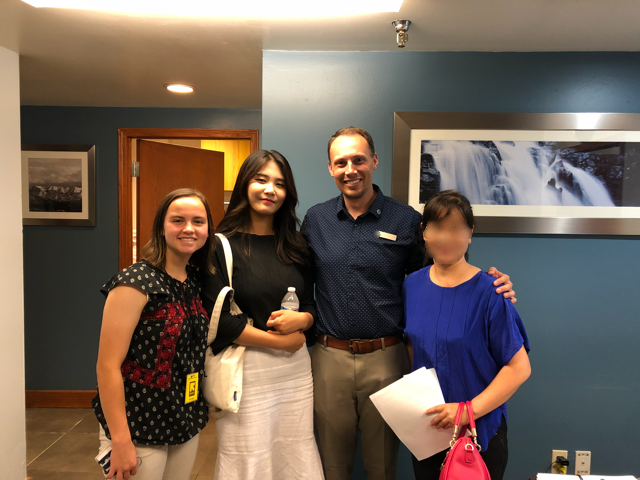NGO Intern Life in the U.S.
An Internship with a North Korean Refugee.
Written and photographed by Han Soyoung.
Last year, I participated in an internship in the U.S. through a school program offered by Chonnam National University. The organization I started working for was an NGO called the International Rescue Committee (IRC), which has several branches in the U.S. In fact, there were several other work sites in the internship program, but I chose the IRC because I was attracted to the NGO field.
The IRC is currently located in more than 40 countries, with 25 IRCs in the U.S. alone. The IRC provides emergency aid and long-term assistance to refugees and those displaced by war, persecution, or natural disasters. It focuses mainly on health, education, economic wellbeing, and safety. My IRC office was in Salt Lake City, Utah, and I worked there for 12 weeks.
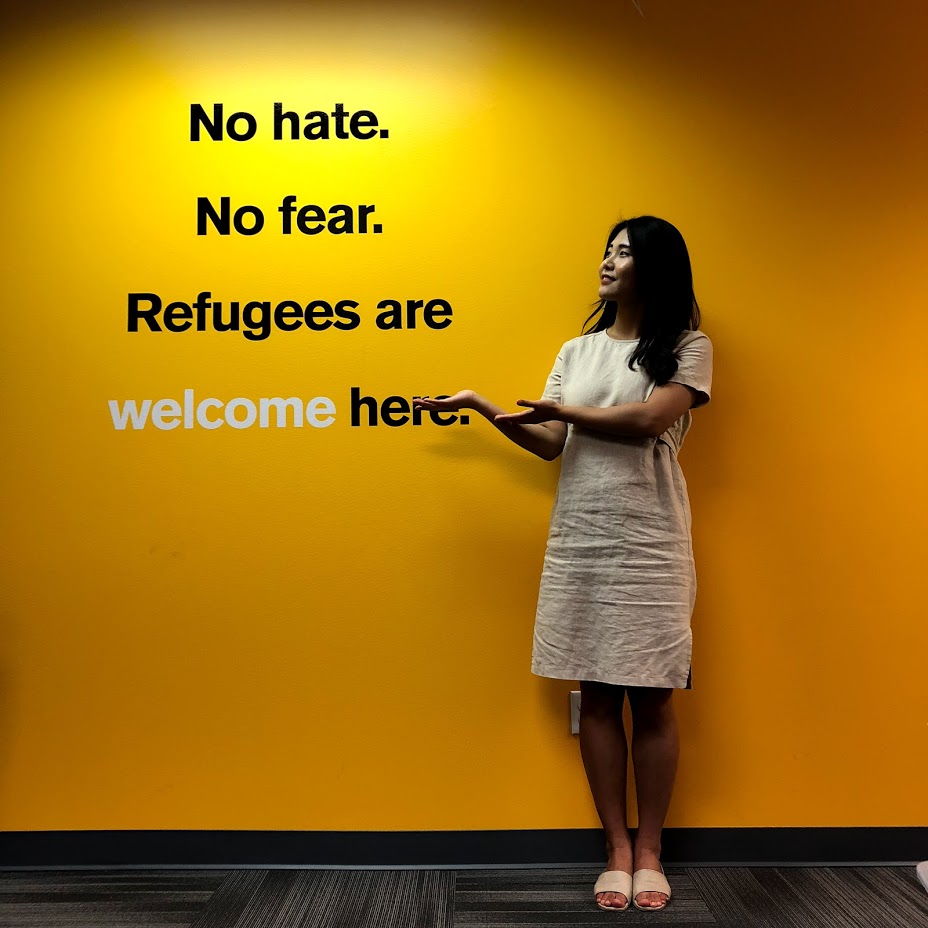
I worked there as part of the Employment Team and was in charge of investigating the refugees’ job preferences and finding the jobs that best suited them. The work was done by creating resumes based on their careers, preferences, and time availability, and by submitting an application in person or applying online. In particular, refugees from all over the world came to our IRC office, so I was able to experience various cultures and languages.
Then, about a week after I started my internship, a refugee from North Korea came to our office. She had lived in China after escaping from North Korea and went to the Immigration Detention Center in Thailand where she applied for immigration to the U.S., not to South Korea, and fortunately came to my IRC office. That was the first time in my life to meet a North Korean, and it was an amazing experience. Not only I but also my colleagues seemed to find the meeting between a South Korean and a North Korean quite interesting. They wondered things like, “How different is the language?” and “Is there any problem with communication?” They took a lot of interest in us, throwing questions like these at us.
At that time, because I was the only Korean intern at the IRC, I handled all the translation required for the North Korean refugee – from making appointments to orientation and job searching. Even though I had no experience in interpreting, I became proficient over time.
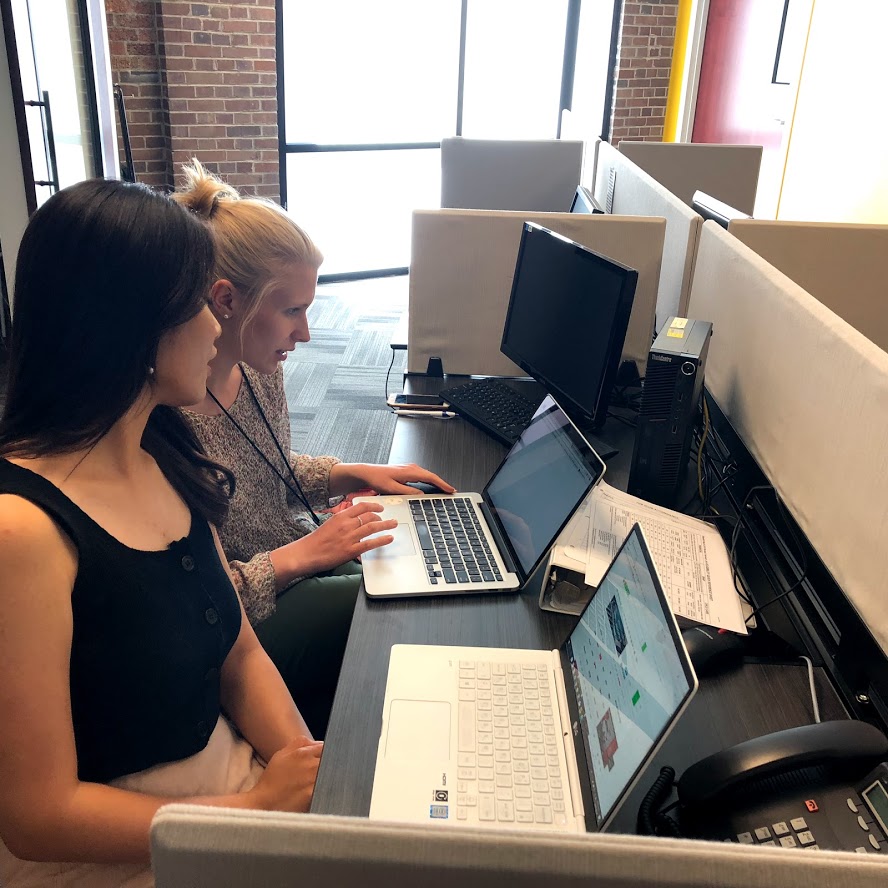
The more time I spent with the North Korean refugee, the more we felt like friends in the unfamiliar land of the U.S., becoming more than just an intern and a refugee. Then she began telling stories resembling those I had heard on TV, back in South Korea. She said that she married in China after defecting from North Korea and has an elementary school-aged child there. However, she was separated from her family while staying at the Immigration Detention Center in Thailand and had not been able to meet them until arriving in the United States. So, it was her dream to live happily in the U.S. with her husband and child if she could get permanent residency. It was heartbreaking to see that ordinary South Korean undertakings could only be achieved by taking such a high level of risk by North Koreans. After hearing this story, I decided to do my best to help others during my internship.
In addition to this experience, I also managed the Job Club held every Thursday at our IRC. The Job Club is a program that provides information about U.S. labor laws to refugees seeking jobs so that they would not to be taken advantage of while working. I hosted the Job Club under two themes, “How to Avoid Problems and Mistakes on the Job” and “Words Relating to Jobs and Work,” and although they were poor at English, they made an effort to practice and write each letter. I felt an immense sense of accomplishment.
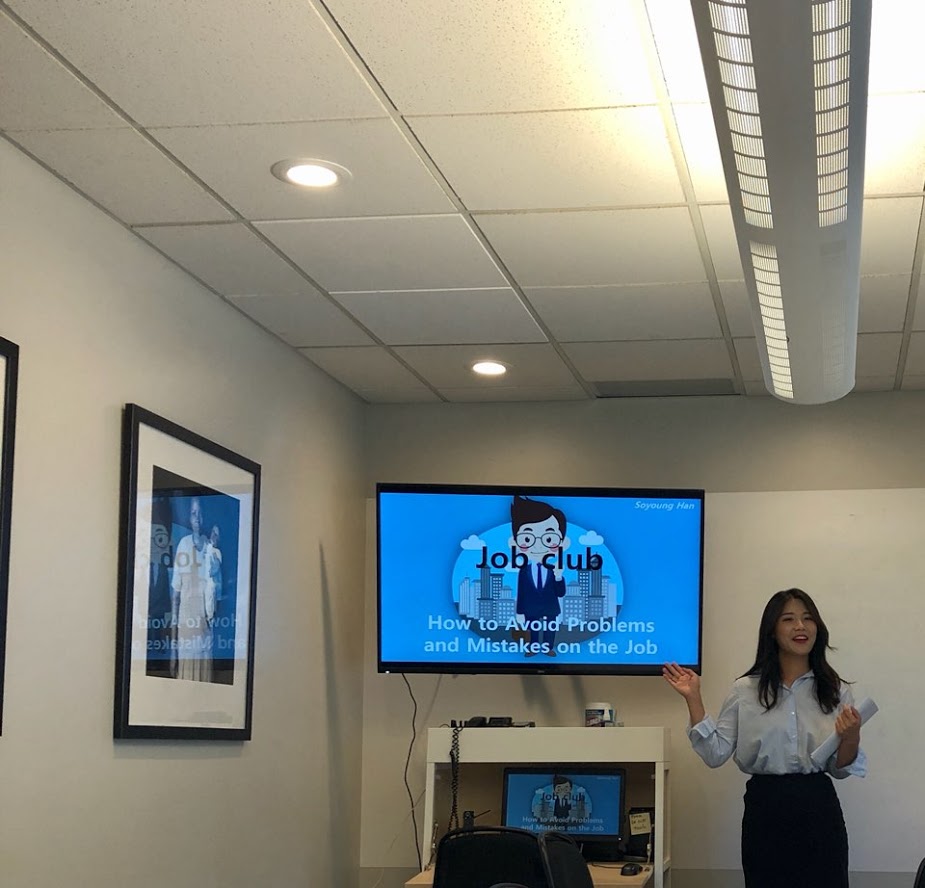
On the last day of the internship, the North Korean refugee obtained work at the Sheraton Hotel in downtown Salt Lake City, and through this, I was able to achieve one of my internship’s goals.
Through this internship, I thought it was really great that someone could be happy with the little help that I provided. And the more important thing I realized is the circle of kindness (giving is receiving). I was someone who helped someone coming to the IRC, but when I first experienced life in the U.S., I needed someone’s help. My homestay family always took care of me and always invited me to family events. I am very thankful for that. In addition, Mira, who was the only Korean employee at the IRC, invited me to her home to make Korean-style home-cooked meals. I was lucky enough to have so many people around me willing to help me adjust to the new culture and environment during my stay in the U.S.
A year later, I still miss the peaceful atmosphere of Salt Lake City. Even after I have come back to South Korea, the North Korean refugee I met sometimes phones me just to talk.
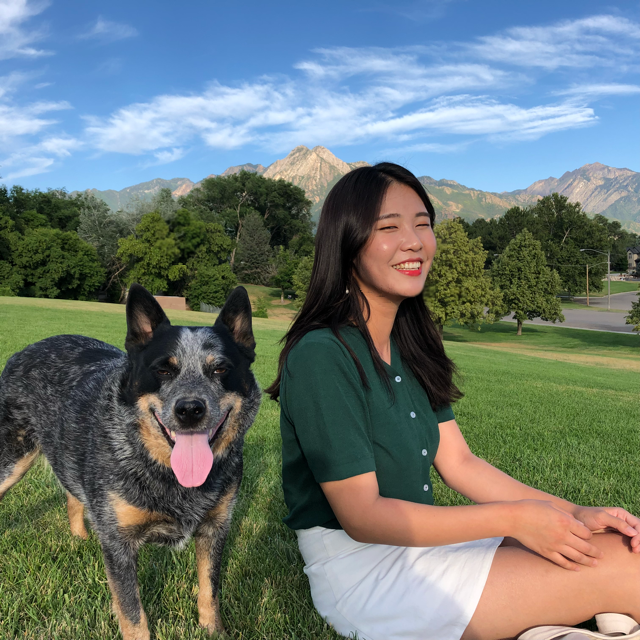
The internship experience, which represents a turning point in my life, has allowed me to discover what kind of person I am. Unlike my earlier days in Korea, where I had always lived just as others did, in a uniform way, the new intern experience has given me the courage to think about what I like and to challenge myself to not be afraid to pursue what I really want to do.
Through this experience, I have also realized that I cannot always be happy. Before I went to the U.S., I had imagined that intern life would always be happy and full of excitement. However, when I started my internship, there were many things that I could not control, and I cried a lot on the bus going home after work.
Although one cannot always be happy, I now realize that I can tackle any challenge I face if I just remember that there are people cheering me on and helping me. I do not know what is going to happen to me in the future, but I will not be afraid as long as I just remember this fact – even if trouble faces me.
The Author
Han Soyoung majored English language and literature at Chonnam National University. Presently, she is working as an intern at the Gwangju International Center. Instagram: @sssuya_o



